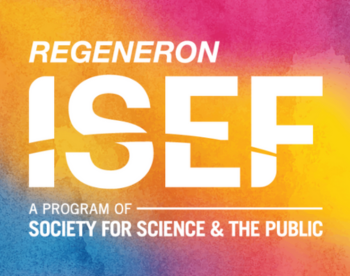30 Computer Science Research Topics for High School Students
[elementor-template id="1670"]
Computer Science is a discipline that explores the mysteries of computer technology. It goes beyond coding, encompassing algorithm design, system architecture, artificial intelligence, and more. This field is full of endless possibilities, from developing efficient software applications to solving complex mathematical problems, making its applications incredibly broad. Learning computer science helps us understand how the digital world operates and provides powerful tools for solving real-world problems.
In today's digital age, the influence of computer science is pervasive. It not only drives technological progress but also profoundly changes our lifestyles. From smart homes to online education, from autonomous vehicles to advanced medical diagnostics, the applications of computer science continue to expand their boundaries. Mastering the knowledge and skills of computer science not only enhances personal competitiveness but also contributes to societal development.
In this issue, Embark computer science mentors present 30 exciting computer science research topics, covering multiple key areas of the field. Our goal is to inspire your interest in computer science and provide you with a wide range of research ideas and inspiration.
How to participate in computer science research?
High school students interested in exploring computer science research can take action in several ways. First, solidify foundational knowledge by learning programming languages like Python, Java, or C++, and understand data structures and algorithms. Then, engage in hands-on practice by writing simple programs and participating in open-source projects to gain experience. Participating in programming competitions can hone skills, and joining computer science clubs allows for knowledge exchange. Reading professional books and papers is also crucial; start with introductory books and gradually learn about cutting-edge technologies. Seeking mentorship is important—both school teachers and external experts can provide guidance. Additionally, taking online courses for in-depth learning, staying updated with industry trends, and maintaining enthusiasm and innovation in learning are essential. Through these steps, high school students can continually advance on their journey of exploring computer science.
This guide presents 30 research ideas across various computer science subfields for high school students to explore. These topics cover a wide range of areas within computer science, aiming to spark students' curiosity and offer a starting point for research. We hope these suggestions inspire students to begin their journey into computer science research!
Research Topic 1: Fundamentals of Computer Programming
Learning the fundamentals of computer programming is a crucial starting point in computer science, covering programming languages, basic algorithms, and program design techniques. High school students can begin with languages like Python or Java, gaining a grasp of essential concepts like variables, control structures, and functions. By writing simple programs, they can also learn how computers recognize and render images and handle data processing. Studying basic algorithms, such as sorting and searching, can help students understand how computers efficiently process data. This topic builds students' logical thinking and problem-solving skills, laying a solid foundation for future studies in computer science.
You can explore the following topics:
- Learning and application of programming languages
- Implementation and optimization of basic algorithms
- Problem-solving strategies in program design
- Hands-on programming projects
Research Topic 2: Data Structures and Algorithms
Data structures and algorithms are core components of computer science, covering data storage, organization, and the design and analysis of algorithms. By studying these topics, high school students can improve their ability to solve complex problems. Data structures like arrays, linked lists, and trees allow for efficient data storage and access, while algorithms provide step-by-step methods for solving problems, such as sorting and searching. This topic teaches students how to choose suitable data structures and algorithms to optimize program performance.
You can explore the following topics:
5. Learning and application of common data structures
6. Analysis and comparison of algorithm efficiency
7. Case studies on practical applications of data structures and algorithms
8. Practice in algorithm design and optimization
Research Topic 3: Basics of Computer Networks
The basics of computer networks cover network protocols, data transmission, and network security. High school students can learn the principles of network communication and understand key concepts such as IP addresses and routing. By studying the TCP/IP protocol suite, students gain insights into how data is transmitted efficiently over a network. Additionally, learning about network security enhances students' awareness of online threats and defenses. This topic provides a solid foundation for future studies in network engineering and information security.
You can explore the following topics:
9. Learning and understanding network protocols
10. Principles and practices of data transmission
11. Basic knowledge of network security 12. Development of network applications
Research Topic 4: Database Management Systems
A Database Management System (DBMS) is software for storing, retrieving, and managing data. By studying DBMS, high school students can learn fundamental concepts like data models, database design, and SQL query language. Through hands-on experience, students learn to create, update, and query databases, understanding the importance of data integrity and security. This topic also explores database optimization techniques to improve data retrieval efficiency, equipping students with valuable skills for information technology and data analysis.
You can explore the following topics:
- Basic concepts and design of databases
14. Learning and application of SQL language
15. Database query optimization - 16. Database security and management
Research Topic 5: Fundamentals of Software Engineering
The fundamentals of software engineering encompass the entire software development lifecycle, including requirements analysis, design, coding, testing, and maintenance. By studying software engineering, high school students can learn methodologies and tools for system development and understand the basic principles of software project management. Through hands-on projects, students will develop skills in writing high-quality code, conducting effective testing, and ensuring software stability and security. This topic also explores modern practices like Agile development and continuous integration. Knowledge of software engineering provides a strong foundation for students aiming to pursue careers in software development and related fields.
You can explore the following topics:
- Understanding the software development lifecycle
18. Requirements analysis and system design
19. Coding standards and best practices
20. Software testing and quality assurance
[elementor-template id="1677"]
Research Topic 6: Artificial Intelligence and Machine Learning
Artificial intelligence (AI) and machine learning (ML) are cutting-edge fields in computer science focused on designing and implementing intelligent systems. By studying AI and ML, high school students can learn how to build systems that can learn and adapt. Topics include supervised learning, unsupervised learning, and reinforcement learning algorithms, as well as the principles and applications of deep learning neural networks. Through projects, students will apply machine learning techniques to real-world challenges like image recognition, speech processing, and data analysis. Mastery of AI and ML concepts opens doors for students interested in advancing in the intelligent technology sector.
You can explore the following topics:
21. Basic concepts and applications of artificial intelligence
22. Learning and practice of machine learning algorithms
23. Principles and applications of deep learning
Research Topic 7: Computer Graphics and Visualization
Computer graphics and visualization involve generating images and displaying data using a computer. Through study, high school students can gain skills in graphics rendering, lighting models, and 3D modeling. Topics cover animation creation, image processing techniques, the use of graphic libraries, visualization algorithms, and practical project experience. The goal is to develop students' abilities in graphics rendering and data analysis, laying the groundwork for careers in game development, film production, and data science.
You can explore the following topics:
24. Basic concepts and principles of computer graphics
25. Applications of computer graphics
26. Methods and techniques for data visualization
27. Design of graphical interfaces and user experience
Research Topic 8: Principles of Programming Languages
The principles of programming languages delve into the internal workings of programming languages, including syntax structures, semantic rules, and the compilation or interpretation processes. Through study, high school students can understand how programming languages convert human-readable code into machine-executable instructions. Topics include an introduction to various programming paradigms (such as object-oriented and functional programming) and how to design and implement simple programming languages. This topic also explores language performance optimization and security issues.
You can explore the following topics:
- Design and implementation of programming languages
29. Compilation process and optimization techniques
30. Comparison of interpreted and compiled languages - You can view more Computer Science research topics for high school students here.
Another Option - Embark Exploration Program
Embark, established in 2016, is an educational institution focused on providing customized scientific research training for young people. The core team members are graduates from top universities in the United States. Embark has over 3,000 mentors from prestigious institutions such as the Ivy League, MIT, Caltech, Johns Hopkins University, and Carnegie Mellon University.
Embark offers personalized one-on-one research guidance, tailoring research topics to the interests of each student. Embark helps students systematically develop research skills, build a solid research framework, integrate research with real-world applications, understand the value of research, and enhance their problem-solving abilities. All of this contributes to strengthening their college applications.
For more information, please visit the Embark Exploration Program. If you have any questions or need further information, feel free to contact us. We would be happy to assist you and discuss collaboration opportunities.
[elementor-template id="1682"]



